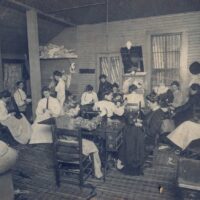A new report released Thursday by literary and free-expression group PEN America tracked book bans in public schools from July 2021 to March of this year. Its index counted 1,586 book bans targeting 1,145 books in dozens of school districts across 26 states.
Sarah Ruiz-Grossman reports for Huffpost, “The report noted that while book bans in public schools have existed throughout U.S. history, the breadth of such efforts has ‘expanded rapidly’ in the last year, both in the number of books banned and ‘the intense focus on books that relate to communities of color and LGBTQ+ subjects’.”
The report found that 86 districts (comprising nearly 2,900 schools and more than 2 million students) had banned books. Over 40% had prominent characters who were people of color. Texas had the most school bans at 713, followed by Pennsylvania at 456 and Florida at 204, Ruiz-Grossman reports.
“Much of the recent push to ban certain books stems from Republican-led bills seeking to prevent students from learning about white supremacy and racism, under the pretense of purging so-called “critical race theory” from classrooms,” Ruiz-Grossman reports. “While such laws don’t all explicitly mention critical race theory — a college-level academic discipline focused on how racism is embedded in the country’s legal, political and social institutions — they are all written with similar language meant to stifle instruction about racism, privilege and white supremacy.”
Heather Chapman is a freelance writer and the chief blogger for the Institute for Rural Journalism and Community Issues within the College of Communication and Information. Previously she was a journalist for the Lexington Herald-Leader and WUKY. She graduated from the University of Kentucky with a degree in integrated strategic communication in 2015. . It publishes The Rural Blog, a daily digest of events, trends, issues, ideas and journalism from and about rural America; and Kentucky Health News, which provides coverage for news media in the state.






